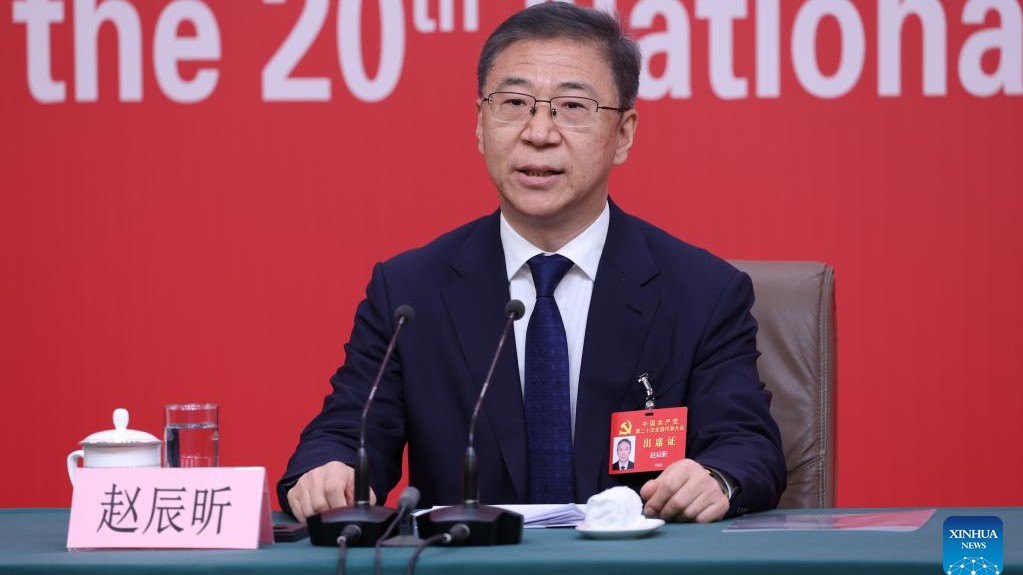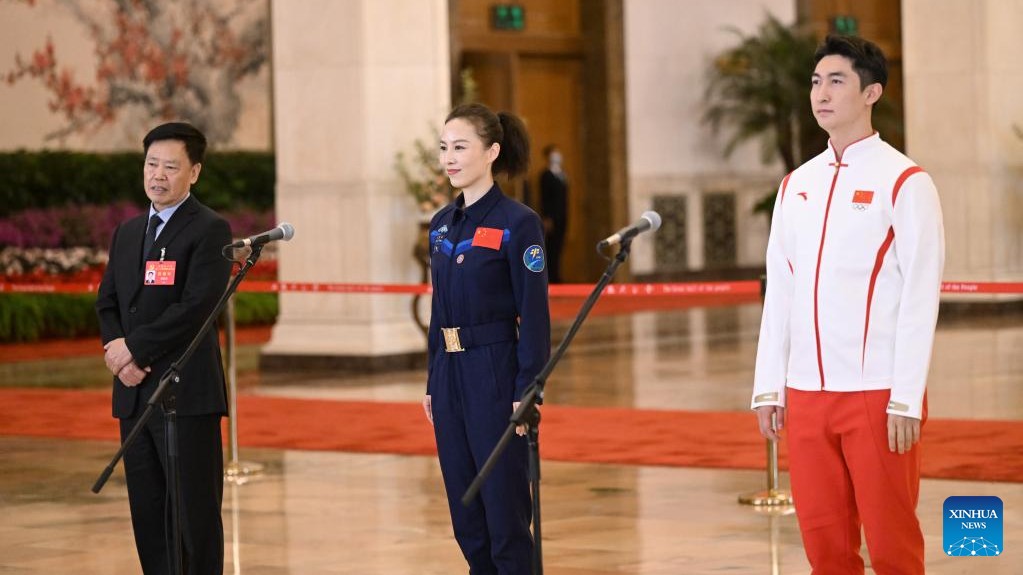
Photo taken on August 27, 2020 shows the 12th Press Conference on Xinjiang-related Issues in Urumqi,Xinjiang.(Xinjiang Daily/Zhou Peng)
On August 27, 2020, the Information Office of the People's Government of Xinjiang Uygur Autonomous Region held the 12th press conference on Xinjiang-related issues.
Host of press conference: Deputy Head of the Publicity Department of the CPC Xinjiang Committee Xu Guixiang
Xu Guixiang: Dear friends from the press, good afternoon. Welcome to the 12th press conference on Xinjiang related issues.
The press conference invited the Spokesperson of the Information Office of the People’s Government of XUAR Elijan Anayit, the Director of the Education Department of XUAR Parhat Azim, the Director of the Ethnic Affairs Commission of XUAR Mehmut Usman, the Director of the Department of Human Resources and Social Security of XUAR Rehmanjan Dawut, the Director of the Health Commission of XUAR Mutalip Rozi. They will answer questions from you.
Our friends from the press, please raise your hands to ask questions. Before asking questions, please introduce the name of the news press you are in.
Reporter from China Global Television Network (CGTN)
Q1: On July 9, the US Departments of State and Treasury imposed sanctions on Public Security Department of Xinjiang and party and government officials in Xinjiang based on US domestic laws. On July 31, the US announced sanctions on the Xinjiang Production and Construction Corps (XPCC, commonly known as Bingtuan) and its officials, citing the same reasons. What’s your response?
Xu Guixiang: This question goes to Elijan Anayit.
A: Xinjiang’s affairs are purely China’s internal affairs. Any external force, American politicians included, has no right and is in no position to interfere. The so called sanctions are a stark hegemonic act, which violates basic norms governing international relations, severely interferes in China’s internal affairs, and hurts the feelings of all ethnic groups in Xinjiang. The carders and masses in Xinjiang firmly oppose and strongly condemn this.
Facts speak louder than words, and justice naturally inhabits man’s heart. Xinjiang has adhered to the vision of making development people-centered and continuously promoted projects that benefit people, focusing on employment, education, medical care, social security and housing. The living standards of all ethnic groups in Xinjiang have been improved year by year.By the end of 2020, all the poor rural population under the current standard in Xinjiang will be lifted out of poverty and together with the rest of the country, enter a moderately prosperous society in all respects. Xinjiang hasn’t seen a single violent, terrorist incident over the past three years and seven months. Extremism has been effectively reined. Public security has notably improved and people have a much stronger sense of fulfillment, happiness and security. Today’s Xinjiang is at the best of prosperity and development that it has ever been. All ethnic groups live and work in peace and contentment, and they enjoy the rights to subsistence and development. In July 2019, ambassadors of over 50 countries to the UN Office at Geneva co-signed a letter to the president of the UN Human Rights Council and the High Commissioner for Human Rights, applauding China’s respect and protection of human rights in its counter-terrorism and deradicalization efforts. In October 2019, at the Third Committee session of the 74th UNGA, more than 60 countries commended in their statements the tremendous human rights progress achieved in Xinjiang, China. On July 1, 2020, at the 44th session of the UN Human Rights Council held in Geneva, 46 countries in their joint statement commended the human rights progress and counter-terrorism and deradicalization efforts in Xinjiang, they supported China’s position on Xinjiang-related issues.
As an integral part of the region, Xinjiang Production and Construction Corps has made important contributions to promoting Xinjiang’s development, ethnic unity, social stability and border security, living in harmony with all ethnic groups as a friendly and supportive companion. In recent year, the XPCC has been vigorously advancing urbanization, new-type industrialization and agricultural modernization by tapping its strengths. While vigorously promoting economic development, XPCC has focused on improving people’s livelihood. In 2019, XPCC created 110,100 jobs and registered the per capita disposable income at 33,403 yuan and the registered urban unemployment rate at 2.51%, below the control target of 4%. By the end of 2019, all farms and poor population had been lifted out of poverty. Over one million workers and people have moved into new houses equipped with tap water, electricity, gas heating, and kitchen and bathroom facilities. Their production and living conditions have been improved substantially, and their happiness has been on the rise.
However, some politicians in the United States disregarded facts and distorted truth, wantonly attacking and slandered on the progress that Xinjiang has made under the pretext of human rights. This time, they spared no effort pushing for the passing of the so-called sanctions, openly defending and conniving terrorism and extremism, and supporting the three evil forces. These brutal moves further revealed the ill intention of the US to harm Xinjiang’s stability and contain its development. We hereby warn the US side that the so called “sanctions” are just a ridiculous farce and a disgusting trick, no one will be fooled. We have unwavering resolution to combat terrorism and extremism and maintain social stability and lasting peace. Any foreign force, who attempt to undermine Xinjiang’s stability and all ethnic groups’ prosperity will never succeed.
We urge the US side to immediately revoke the mistakes, and stop using dirty tricks towards Xinjiang-related issues. Otherwise, they just invite insult and must bear all the consequences arising therefrom.
Reporter from China Daily
Q2: Some overseas people think that Xinjiang discriminates its ethnic minorities and is wiping out their identities. What is your comment?
Xu Guixiang: This question goes to Mehmut Usman.
A: Xinjiang upholds the Constitution of the People’s Republic of China, Law of the People’s Republic of China on Regional Ethnic Autonomy. Xinjiang fully implements the national ethnic policies. People of all ethnic groups in Xinjiang enjoy the same status and the same rights, and participate as equals in administering state affairs. The socialism ethnic relations featuring equality, unity, and harmonious have been developed and consolidated. People of all ethnic groups in Xinjiang are as united as the seeds of a pomegranate holding together tightly. There is no such thing as discrimination and identity purge.
The customs on diet, festivals, weddings and funerals of people of all ethnic groups in Xinjiang are protected in accordance with the law. The best traditions of all ethnic groups are protected and preserved. Many famous buildings representing the history and cultural heritages of the ethnic minorities including Uygur, Mongol, Hui and Xibo have been protected. The government protects ethnic people’s freedom to use and develop their own languages according to law. Ethnic minority languages are extensively used in such areas as judicature, administration, and public affairs. Cadres of ethnic groups are trained to provide support to the social and economic development in Xinjiang. Continue to promote the ethnic unity campaign. Since 2016, civil servants of all ethnic groups have been paired up with people as friends and relatives, helping them change mindset, brodening ways to increase their income, and solving their difficulties in employment, education and medical service. In the past three more years, the employees from the government-funded institutions have donated 987 million yuan, 51.12 million pieces of goods to the people, and done 18.77 million good deeds, harvesting positive response from the public.
Some American politicians show extraordinary care to the minorities in Xinjiang, but turn a deaf ear to their own pains such as racial hatred and discrimination. Reviewing the American history, it was full of exclusion, slaughtering and forced assimilation of the Native Americans, resulting in dramatic decreases of their population in the American society. Some media outlets even described American Indians as the disappearing ethnic group. According to a Pew Research Center survey titled Race in America 2019, systemic racial discrimination is reflected in poverty rate, housing, education, criminal offence, judicature and health care; more than four-in-ten say the country hasn’t made enough progress toward racial equality. Since the outbreak of COVID-19,African Americans have a COVID-19 infection rate five times that of white Americans, who also suffer far lower death rate comparing to their African American folks. Those American politicians are in no position to point fingers at Xinjiang and make irresponsible remarks.
Reporter from China News Service
Q3:There are media and agencies calling vocational education and training centers “concentration camps” that “detained one million Uygurs”. What’s your response?
Xu Guixiang: This question goes to Elijan Anayit.
A: The so called “vocational education and training centers are concentration camps where up to one million Uygurs are detained” is an outright nonsense. As we’ve stressed on multiple occasions, the vocational education and training centers, established in accordance with the law in Xinjiang, are no different in nature from the community corrections in the US, the Desistance and Disengagement Programme (DDP) in the UK, and deradicalization centers in France. All of them are useful measures and positive explorations for preventive counter-terrorism and deradicalization, with the aim of eradicating extremism and preventing of violent terrorism from escalating. Shohrat Zakir, governor of Xinjiang Uygur Autonomous Region, announced in a news release on December 9,2019, that all trainees had graduated from the centers after completing their courses. They have found jobs and their quality of life has improved.
The basic principle of respecting and protecting human rights in accordance with China’s Constitution and laws is strictly observed in these centers to guarantee that the personal dignity of trainees is inviolable. Personal insult and maltreatment in any way is strictly prohibited. All trainees enjoy freedom of movement. The centers are run as boarding facilities and trainees can go home and ask for leave to tend to personal businesses. Trainees’ right to use their own spoken and written languages is fully protected. All rules, regulations, curriculum tables and menus are in the common language and languages of ethnic minorities. The customs and habits of different ethnic groups are fully respected and protected. Trainees can decide on their own whether to attend legitimate religious activities when they go home.The vocational education and training centers are well equipped with different kinds of living facilities. There are radios, TVs and air conditioners in the dormitories. Medical facilities in the centers are available to trainees, which provide health and treatment service. The centers also have sports venues for the trainees to play basketball, volleyball and table tennis, cultural venues such as reading room, computer room and projection room, and auditorium and outdoor stage. Ethnic singing and dancing show and sports game are often held in the centers. Trainees’ learning, living and recreational needs can be fully satisfied in the centers. Does this kind of “concentration camp” exist in the world? Calling the center “concentration camp” is too ridiculous.
The lies clamored by Western and US media outlets that the vocational education and training centers are concentration camps were already exposed by insightful people of the international community. Besides, many journalists who have been to the vocational education and training centers all gave fair reports. In January 2019, a journalist from Turkey said" the Western media reported negatively about the vocational education and training center. They said that concentration camps were built here and people were persecuted. I came with that kind of thought, but after I visited the centers, my prejudice was eliminated. All I saw was an educational center, where people get training and improve themselves. And they have become people with virtues. The atmosphere in the center was very good, which was helpful for them to reintegrate into society." As for the rumors created by the western and US media that millions of Uygurs were detained in the centers, it is totally nonsense. It is known that such horrible rumors were created and spread by Chinese Human Rights Defenders, an NGO supported by the US government. The NGO got to the conclusion that among the 20 million people of Xinjiang, 10% were detained in the reeducation camps based on the interviews of eight Uygurs. The Grayzone, an independent news website has published articles to expose this ridiculous conclusion. On July 25 this year, Max Blumenthal, an award-winning journalist and the author of several books, spoke at an international symposium “No to New Cold War” that many media reports alleging an astonishing number of a million Uygurs being detained are based on shaky source of information that doesn’t stand up to scrutiny. I hope friends from the media could sharpen your eyes and do not be blinded.

Photo taken on August 27, 2020 shows the 12th Press Conference on Xinjiang-related Issues in Urumqi,Xinjiang.(Xinjiang Daily/Zhou Peng)
Reporter from Xinjiang Station of China National Radio
Q4: It is reported by some foreign media outlets that Xinjiang is suppressing Muslim citizens’ freedom of religious belief by demolishing mosques. Could you please elaborate on the religion-related situation in Xinjiang?
Xu Guixiang: This question goes to Mehmut Usman.
A: According to the Constitution of the People’s Republic of China, "citizens of the People’s Republic of China enjoy freedom of religious belief. All normal religious activities are protected by law. No state organ, public organization or individual may compel citizens to believe in, or not to believe in, any religion; nor may they discriminate against citizens who believe in, or not to believe in, any religion. " This provides legal basis to protect the freedom of religious belief of people of all ethnic groups in Xinjiang. Xinjiang has made regional regulations in this field. It is out of people’s free will to believe in or not to believe in any religion in Xinjiang. All normal religious activities, including attending religious services, fasting, and celebrating religious festivals, which believers conduct at places of worship or at their own homes in accordance with customary religious practices, are protected by law, and no organization or individual may infringe on these rights. Otherwise, they shall bear corresponding legal responsibilities.
Xinjiang continues to improve the conditions in the mosques. Xinjiang Islamic Institute and its eight branches have been established to nurture religious personnel. The Koran and Irshad al-Sari li Sharh Sahih al-Bukhari have been published in Chinese, Uygur, Kazak and Kirgiz languages. Believers’ ways to get religious knowledge have been broadened. Since 1996, government has arranged chartered flights to ensure pilgrimages to Mecca for Muslims. The Xinjiang regional government funds the medical care and interpretation for pilgrims, and offers other services to ensure safe and orderly pilgrimages. So far, more than 50,000 Muslims in Xinjiang have been to Saudi Arabia on such pilgrimages.
It is undeniable in the international world that the US violated human rights of Muslims. In recent years, the US waged wars under the flag of “anti terrorist” in countries like Iraq, Syria, Libya, and Afghanistan, resulting in tens of thousands of civilian casualties. All these damaged countries mentioned above are Muslim countries with no exception. With in its borders, intolerance towards the religion of Islam has been worsening and Muslim communities face ever increasing discrimination in the US. The US is the only country in the globe imposing the “Muslim Ban” specially for Islamic groups. In the US, there exists the situation of constant deterioration in the tolerability of Islam and the discrimination of Islamic groups. In the US midterm election 2018, over 1/3 of the candidates considered that Muslims are born in nature of violence or they may pose imminent danger; nearly 1/3 of the candidates appealed for deprivation of Muslims’ basic rights or claimed Islam is not a religion. A report from Council on American Islamic Relations shows that more than 1/3 of the anti Muslim events in the US were incited by the Federal Agency. According to Pew Research Center, there are 82% interviewees think they were discriminated in the US. With these notorious facts lying ahead, I’d like to ask some of the US politicians, where did you get the courage to unashamedly attack and smear the state of religious freedom in Xinjiang?
The so called “demolished the Mosque” is also sheer nonsense. Religious venue gains its legal status by lawfully applying for registration formalities to the government, thus all the rights and interests could be protected by law. Xinjiang has put a high value on protection and repair of Mosques, the governments not only constantly help and support to improve the Mosques’ conditions but also guarantee the believers’ normal religious needs. Some of the Mosques built in 1980s-1990s or earlier in Xinjiang were shabby and dangerous, but with the development of urbanization and the building of new countryside, the local government managed series of layout adjustments combined with shantytowns transformation and the beautiful countryside construction, complied with the demands of religious people and local believers, followed the urban-rural construction plans, refurbishing shabby adobe houses and aging dilapidated Mosques through constructing, relocating, and expanding. The Mosques’ conditions had been improved and the believers demands satisfied, by which the policy won the strong support of religious people and believers.
Reporter from Xinjiang Daily
Q5:According to the report from overseas agency, there exists “phenomenon of large-scale forced labor” in Xinjiang, what do you think about this?
Xu Guixiang: This question goes to Rehmanjan Dawut.
A:The so called “large-scale forced labor” in Xinjiang is outright nonsense fabricated out of thin air by a bunch of anti-China forces mobilized by some Western and US agencies and people.
The rights and interests to employment of people of all ethnic groups in Xinjiang is legally protected. Xinjiang by all means adheres to the spirit of theConstitution of the International Labor Organization and related conventions, and strictly abides by laws and regulations including the Labor Law of the People’s Republic of China, Opinions on the Implementation of the Labor Law of the People’s Republic of China in Xinjiang Uygur Autonomous Region,Provisions on the Implementation of Regulation on Labor Security Supervision in Xinjiang Uygur Autonomous Region, legalizing the establishment, operation, supervision, mediation and settlement of labor relations to protect laborers’ lawful rights and interests.
People of all ethnic groups enjoy full freedom in choosing their jobs in Xinjiang. Xinjiang adheres to the employment principle of “workers finding their own jobs, employment through market regulation and employment promoted by government,”giving play to market forces in allocating labor resources to set up labor relations between labors of all ethnic groups and companies through voluntary, two-way selection. Labors of all ethnic groups in Xinjiang have every right to choose jobs without any restriction on personal freedom. What the government endeavors is to foster a sound employment environment to create more opportunities for people to find satisfying jobs and have steady income.
People’s labor rights are protected by law. Laborers of all ethnic groups sign labor contracts with companies out of their own will and the agreed terms and conditions according to laws and regulations, which protect laborers’ rights to remuneration, rest and vacations, labor security and health protection, and social security benefits are legally guaranteed by law. Their customs, languages and cultures, religions and beliefs are fully respected and protected by law no matter where they work, in or outside Xinjiang. Religious believers have rights to normal religious activities with no organizations and individuals may interfere.
The facts have proven that Xinjiang’s labor and employment guarantee schemes have helped people all ethnic groups realize quality and full employment, enabling them to shake off poverty through hardwork, grow their income, and share the benefits of development. Such schemes conform to the economic and social realities in Xinjiang, safeguard people’s immediate interests and respond to their expectations, and are in line with international common practice, qualifying as correct solutions that withstand the test. The US accusations about Xinjiang’s employment policy are unreasonable and unsubstantiated. When the US asserted that there’s “forced labor” in Xinjiang, they put contradictions like, on one hand, “different forms of forced labor” do exist “unless Xinjiang provides otherwise with clear and convincing evidence”; on the other hand, they claimed that “it’s impossible to conduct any investigation in Xinjiang and investigation also agencies can’t obtain accurate information.” Such gangster logic is self-conflicting and based no valid grounds. I’d like to ask some of the Americans, where and which ethnic groups did you see that were suffering “forced labor”?
We found that the American and Western media’s attacking and smearing Xinjiang’s employment policy to ethnic minorities is a long-premeditated. The fallacies were cooked up by the Australian Institute of Strategic Policy Studies (ASPI ), which has long been funded by the US government and arms dealers. To serve the interests of its sponsors, the institute fabricated and published a report titled Uyghurs for Sale that was a piecemeal of unfounded stories on March 1, deliberately distorting poverty stricken laborers from southern Xinjiang voluntarily going to work in central and eastern cities for better pay as forced labor. Not long after the ASPI report, the US’s Congressional-Executive Commission on China employedthe falsehood as “evidence for reference” to cook up a report titled Global Supply Chains, Forced labor, and the Xinjiang Uygur Autonomous Region, claiming that the exportsfrom Xinjiang were all manufactured by “forced labor”, which has violated the US law and tainted the global supply chains, thus calling on American enterprises to stop importing products from Xinjiang. Recently, the US Congress unveiled the 2020 Trafficking in Persons Report to go on repeating such lies, aiming for the passing of the Uygur Forced Labor Prevention Act to interfere in China’s internal affairs, disrupt Xinjiang’s stability and development, and pin down Chinese enterprises. These contemptible deeds only incur spurn and disrespect.
Reporter from Xinhua News Agency
Q 6: Some US media reported that “Xinjiang’s boarding school education separating ethnic minority kids from their families”. Could you please tell us if that is the real case.
Xu Guixiang: This question goes to Parhat Azim.
A: The so-called statement of “Xinjiang’s boarding school education separating ethnic minority kids from their families” is totally a slander with ulterior intentions.
Xinjiang is a vast region. Villages and towns are quite far apart and some of them are inadequately accessible by public transport, making it a huge burden for parents to take care of their children’s school commuting every day. In order to solve this problem, Xinjiang built nearly 400 boarding schools in 1980s.Following the central authorities’arrangement for strengthening boarding school construction, and in line with the new-type urbanization and rural revitalization, the demographic changes in schooling children, and taking into consideration of geographic, transportation, environmental and safety factors, we have optimized boarding school planning and distribution accordingly. The boarding schools in Xinjiang are built and fully equipped according to the state and regional standards. The boarding schools are financed by state budget and the students enjoy waiver for tuition fees and book expenses like any other students. Besides, rural boarding students receive living allowances-1250 yuan per year per primary students and 1,500 yuan per year per junior high school students- which significantly lessen the financial burden on families.
It is necessary to note that in Xinjiang students of various ethnicities attend schools closest to their homes. Those living near the campus can be commuter students; those living further away can apply to live on campus and schools provide them with free accommodation, plus free meals for those from rural families. It is up to students and their parents to decide whether to live on or off campus and there is no “sending to boarding schools”. Students attending such schools can go home on weekend. They go to school on Monday morning and go home on Friday afternoon as well as on holidays, winter, summer breaks, or things needed to attend. In order to make parent-student contact more convenient, phones are installed in every dormitory building. students can call their parents at anytime, and parents also have phone numbers of the head teachers and can contact them when necessary.
Our practice has proven that boarding school education enhances compulsory education and the comprehensive development of students; it helps rationally allocate educational resources, allowing students to enjoy modern technologies, better faculties and environment; it also helps students learn knowledge, improve their efficiency, and lessen burdens on family, which has become a main approach for education modernization and poverty alleviation in Xinjiang that enjoys support of students’ parents. I want to ask those Americans who make lies: where in Xinjiang did you see students being separated from their parents and got hurt? Which parent is not willing to send children to boarding schools?
As we all know, boarding school education is not a monopoly to Xinjiang. Great Britain was the first country to set up boarding schools,in the US, boarding schools are widespread from shore to shore. In US’s opinion, its boarding schools are right whereas in Xinjiang such system is regarded as “stability maintaining measures by detaining the children of the trainees in vocational education and training centers”, which is a typical “double standard”.
However, in the US because of “zero tolerance” immigration rules, there are many children separated from their parents and siblings. It is reported that since July 2017, the US immigration authorities have separated more than 5,400 kids from their parents, which caused huge pain to their families. UN high commissioner for human rights Michelle Bachelet said the US government separating immigrants’ kids from their parents and trying to detain them indefinitely had caused deep trauma to the kids. The international community can see who is protecting children’s rights and who is causing human rights crisis.
Reporter from Global Times
Q 7: Recently, the Japanese comic writer Tomomi Shimizu published a comic book called “What has happened to Me”, telling a Kazakhstan national Gulbahar Jelil’s experience of being detained in China. Can you please tell us more about Gulbahar Jelil?
Xu Guixiang: This question goes to Elijan Anayit.
A: On May 22, 2017, Gulbahar Jelil was detained as a criminal suspect for providing finances to terrorist activities. According to investigation, Hasima Habay, Gulbahar Jelil’s Xinjiang-based translator, testified that Gulbahar Jelil directed him to transact 17,140 yuan to an ETIM member called Nur something through Wechat, supporting terrorists based outside China. On August 30, 2018, the police granted bail to her after she made an application. On September 3, 2018, Gulbahar Jelil left Xinjiang for Almaty, Kazakhstan. Gulbahar Jelil had never been put into jail or vocational-training center in Xinjiang. While her case was under investigation by public security authority, all her rights were protected. There is no such thing as “her being abused”. Her other fellow inmate can prove this.
It is known that it is not the first time that Tomomi Shimizu attacked the vocational education and training centers with comics. On August 31 last year, Tomomi Shimizu published a comic book about “hardships” of Mihrigul Tursun in the center. We have already debunked the lies by Mihrigul Tursun: she had never been sentenced, and never been sent into vocational-training centers. As a matter of fact, Mihrigul Tursun and Gulbahar Jelil are merely “actors” employed by some western politicians, aiming to slander Xinjiang. Tomomi Shimizu is not familiar with true facts of Xinjiang, nor did she contact trainees of vocational education and training centers. Obviously, her works are full of ideological bias. We hope that Tomomi Shimizu can stop being disseminator of Xinjiang-related lies, and avoid being used by some western politicians.
Reporter from Tianshannet
Q8: Recently, COVID-19 infections re-emerged in Xinjiang. What measures have Xinjiang taken to protect the lives and health of people of all ethnic groups?
Xu Guixiang: This question goes to Mutalip Rozi.
A: Since the COVID-19 hit Urumqi again, Xinjiang Uygur Autonomous Region, according to the general requirement of “strengthening confidence and solidarity and taking science-based and targeted measures,” has taken across-the-board response to the outbreak, containing the spread of the virus and protecting the lives and health of people of all ethnic groups.
First is to make all-out effort to treat confirmed cases. Thanks to the support of the expert panels dispatched under the State Council’s Joint Prevention and Control Mechanism, we, putting people’s lives and health before everything, have put in place and improved the COVID-19 medical treatment and operation mechanisms, and dedicated institutions to receive and treat COVID-19 patients by following the principle of “treat the infected in dedicated facilities by medical specialists from all over the region and with necessary resources” We established joint expert teams comprising experts from the State Council joint mechanism and specialists from the region’s tertiary medical institutions covering disciplines of respiration, ICU, infection, traditional Chinese medicine, nursing, in-hospital infection prevention and control, set up expert assessment system and consultation system, performing timely assessment, analysis, observation on patients, conducting early intervention, diagnosis and treatment, and preventing their conditions from getting worse and critical. We have coordinated premium strengths from the region’s medical institutions and mobilized over 1,900 medics from 24 hospitals across the region to form 32 teams to engage in treatment of Covid-19 patients in dedicated facilities.
According to the Diagnosis and Treatment Protocol for COVID-19 (Edition 7) issued by National Health Commission of PRC, personalized treatment that involves multiple disciplines and TCM has been followed to improve recovery rate through personalized treatment plan for each patient. Meanwhile, every infection control measure is observed to secure the most rigorous protection for the medical professionals and other personnel, and great efforts are made to disinfect hospitals and dispose of medical waste to prevent medical staff from being infected and contamination spreading. Between 00:00 July 15 to 24:00 August 25, a total of 702 COVID-19 patients have been discharged form hospital, and 194 asymptomatic dismissed from medical observation.
Second is to take decisive measures to cut off the spread of the virus. We stick to the targeted- and law- based, legal, and targeted society-wide measures in COVID-19 prevention and control, and prioritize screening and disinfection of key places to eliminate the risks of virus transmission and spreading. Given the epidemic situation in Urumqi, we have employed scientific, differentiated prevention and control approach that is district-based, multi-level targeted, doubling efforts in managing social entities, frequently visited places and key areas, suspending gatherings and group activities, and exercise closed management living quarters. We have intensified prevention and control efforts at train stations, bus stations and airports by checking body temperature, mobilephone generated health code, and redirecting inbound travellers to receive medical observation at dedicated facilities. We call on residents in Urumqi to refrain from making non-essential travels out of the city, and those who have to must take nucleic acid test before leaving, preventing the virus from spreading beyond the city. We have strengthened tests for cold chain logistics and imported frozen and fresh food. Carrying out high quality nucleic acid testing. The State Council Joint Prevention and Control Mechanism in total sent 21 testing teams from 12 provinces and coordinated professionals from 4 third party testing institutions to conduct testing in Xinjiang. And we mobilized testing personnel from prefectural medical institutions to perform COVID-19 testing at the region’s seven designated testing facilities or collect swab samples in the districts of Urumqi. These efforts greatly lifted Urumqi’s testing capabily to 800,000 person (unit) per day, ensuring that all people who are supposed or willing to take the test for COVID-19 are tested, and seeing to it that infections are detected and reported and therefore isolated and treated as early as possible.
Third is to conduct COVID-19 epidemiological investigation. We wasted no time teaming up provincial-municipal-district(county) three-tier epidemiological task forces to investigate on the origins of the virus with all-out efforts, swiftly cutting off possible channels of transmission and screening close contacts and putting them under medical observation in dedicated facilities and loose contacts under stay-at-home quarantine according to the regional COVID-19 prevention and control requirements, thus providing strong support to science-based precise control over the virus.
Fourth is to guarantee supply of essential items. Every possible effort is made to ensure the supply of protective equipment, medications, disinfectants and instruments, and testing reagents, and secure these resources being channeled to the front-line and prioritize the needs of front-line medical personnel and the treatment of patients. Strictly implement the systems of holding officials accountable for grain and daily food supplies, ramping up production and supply of vegetables, fruit, meet, egg, dairy products, grains and other daily essentials; ensuring supply of water, electricity, petrol and natural gas; and guarantee transport channels smooth and undisrupted. Measures are taken to crack down on misbehaviors like driving up price, hoarding and profiteering, making and selling substandard goods, to ensure that markets are adequately supplied and prices stay stable. During Eid al Adha, or the “festival of sacrifice,”we increased lamb and beef supply across the region to fully satisfy the demand of people of all ethnic groups, making sure all consumers can access inexpensive quality meat. Coordinate COVID-19 prevention and control with serving the people, particularly those under home quarantine and the old, sick, ill and disabled, solving their difficulties in daily life and ensuring all people live normal and orderly lives. Up to now, Urumqi has dispensed the third quarter elderly people allowance totalling 12.0986 million yuan to all the recipients in the city, and the living allowance for the disabled poor and special care subsidy for the severely disabled for the months of July and August totalling 2.2977 million yuan. We dispense fresh meat in a timely manner to households on subsistance allowance and other financially stricken families, with 104 tonnes of meat having been distributed so far, benefiting 9,223 such rural and urban households in Urumqi to have their basic needs met.
Fifth is to release information in a timely manner. Take a responsible, fact-based, open and transparent attitude, we update epidemic information on daily basis, hold press conferences on COVID-19 prevention and control, and run 24-hour public hotlines, providing timely responses to public and media concerns. Based on the epidemiological investigations and lab tests, this round of outbreak was associated with a gathering, and the confirmed infections and asymptomatic cases are mostly in Urumqi. As of 24:00, August 25, Xinjiang, including the areas administered by Xinjiang Production and Construction Corps, or Bingtuan as commonly known, has 124 confirmed COVID-19 cases ( 4 in critical condition and 24 severe ones), 44 asymptomatic cases, all in Urumqi, and 3,024 people under medical observation.
It is our staunch belief that, under the leadership of Communist Party of China and with the tremendous institutional strengths of socialism with Chinese characteristics, the support of all other provinces and municipalities and the solidarity of all ethnic groups in Xinjiang, we are bound to fight and win the battle against the epidemic.
Reporter from Xinjiang Radio and Television Station
Q9: Recently the Mardan Aba case received attention from some overseas media outlets. Could you shed more information on it?
A: Mardan Aba, 31, an ethnic Uygur male, with household address registered at Restan living quarters, Restan neighborhood in Kucha City, was sentenced to 16 months’ imprisonment by Nanhai District Court of Foshan City, Guangdong Province for drug trafficking on July 30, 2018, and released on November 28, 2019 after serving his full sentence.
According to Article 37 of the Prison Law of the People’s Republic of China, with respect to a person released after serving his sentence, the local people’s government where his permanent residence is registered shall assist him in resettling down. As Mardan Aba’s permanent residence being registered with Xinjiang’s Kucha City, Foshan public security bureau thus transferred him to authorities in Kucha to help him settle down locally. While being transferred to Kucha, Mardan Aba hurt himself and reacted violently towards the police before being imposed with restrictive measures by the public security bureau, which were removed later on when he turned stable.
In the early months this year when lockdown measures applied in response to the COVID-19 outbreak, Mardan Aba defying the law and ignoring the safety of his and other people’s lives, wasn’t cooperative to the prevention and control measures under the stay-at-home lockdown by refusing and impeding prevention and control personnel to take his temperature, and insulting and beating them. His such behaviors qualified himself as a crime suspect and the public security organs thus imposed him with compulsory measures. And his care is still under trial.


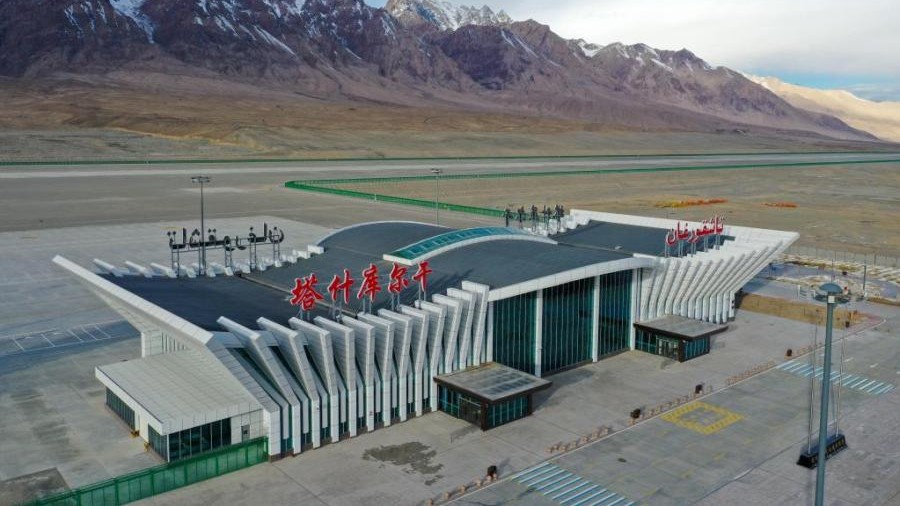

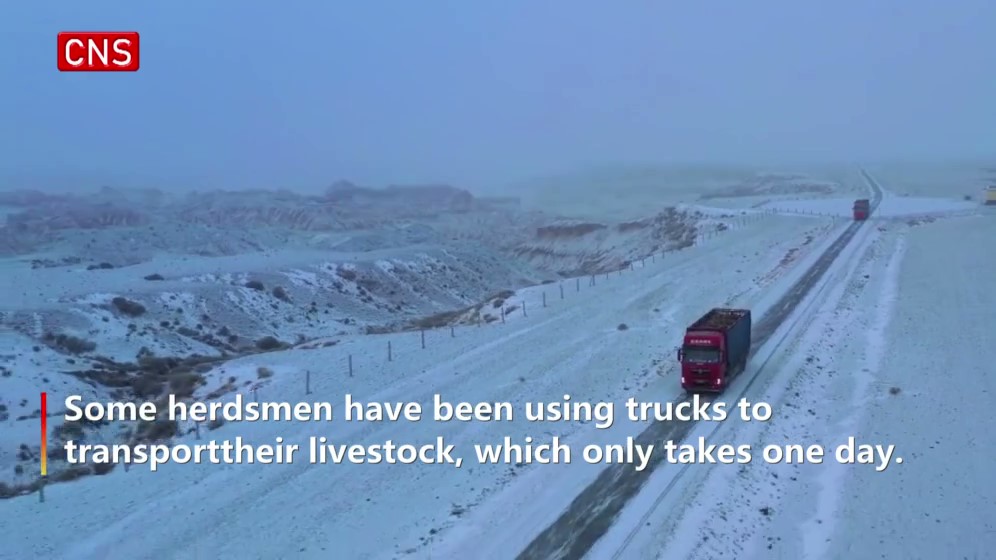
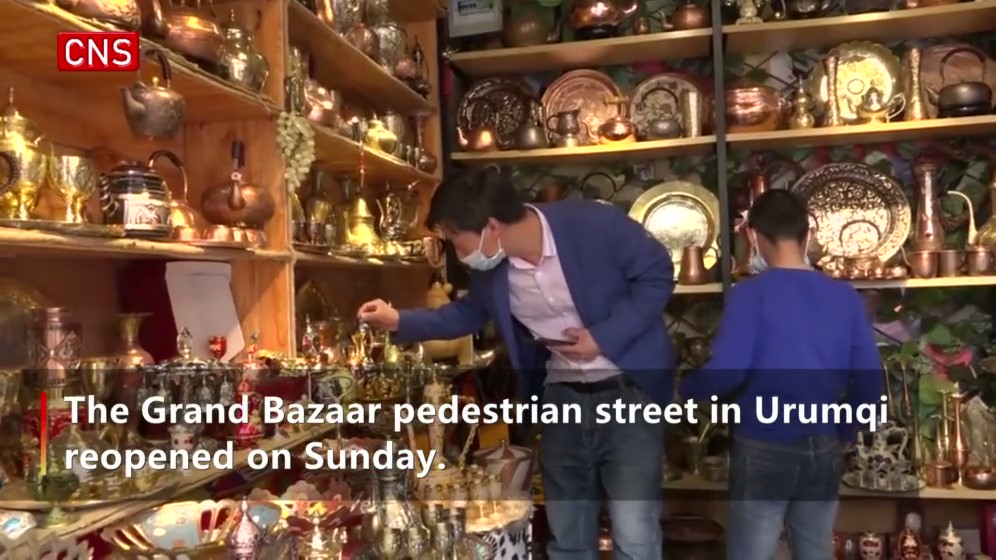

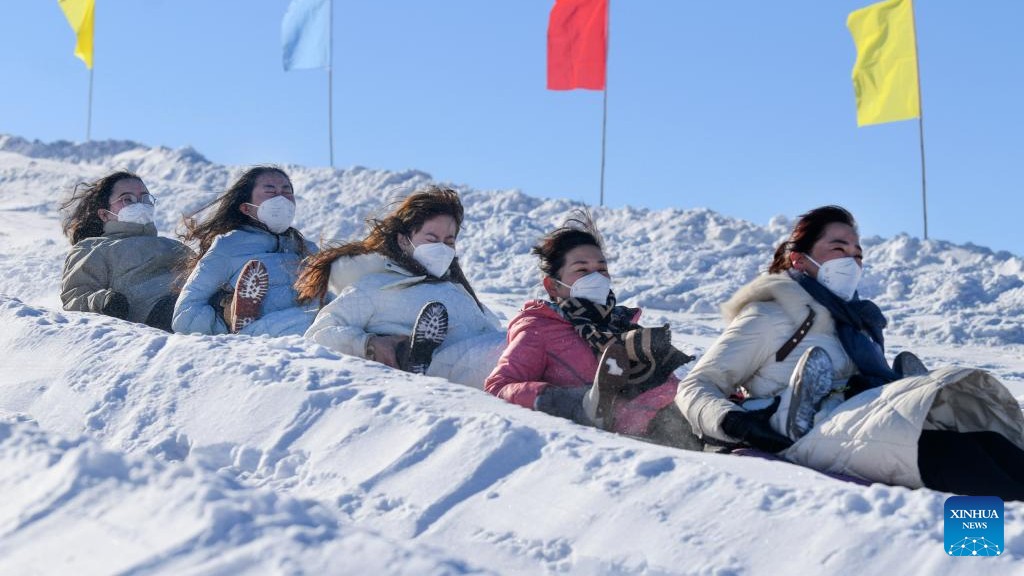


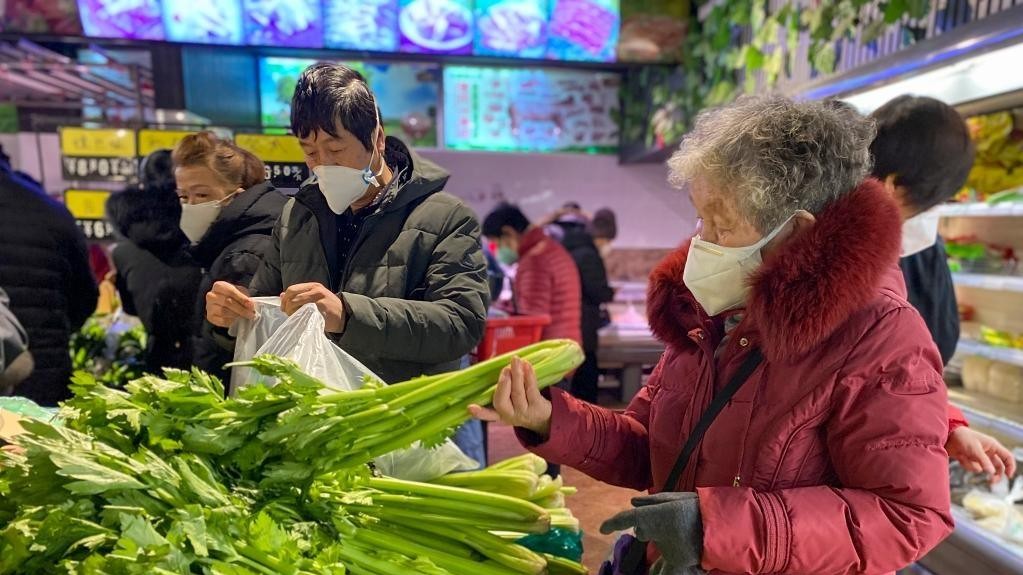

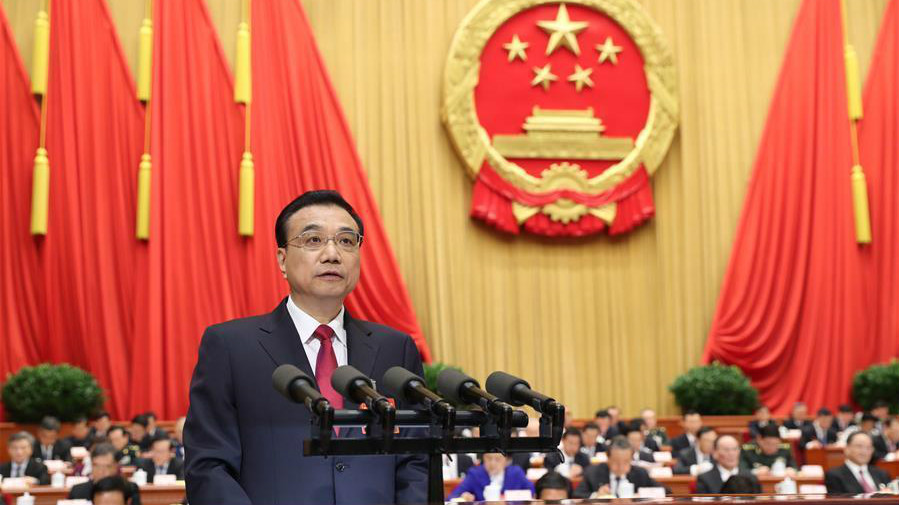
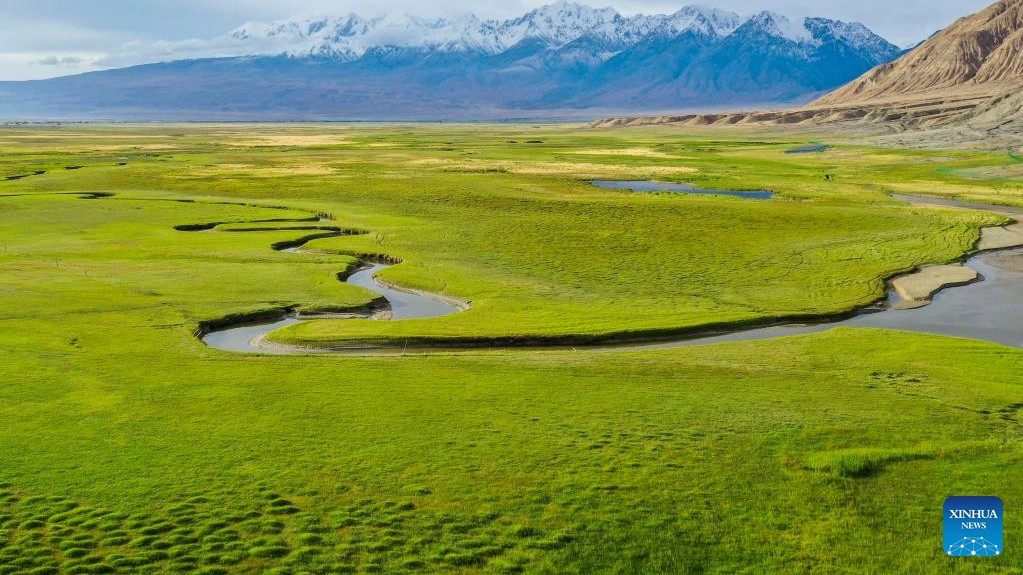
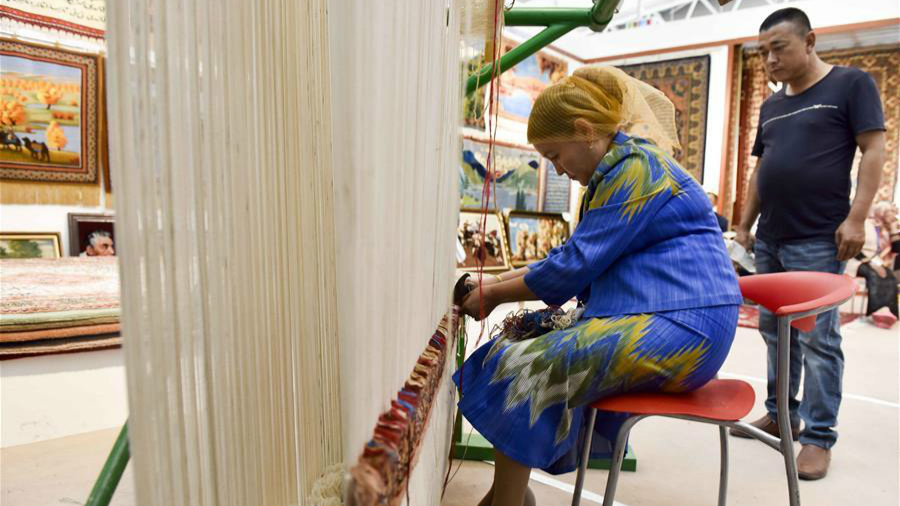
.jpg)

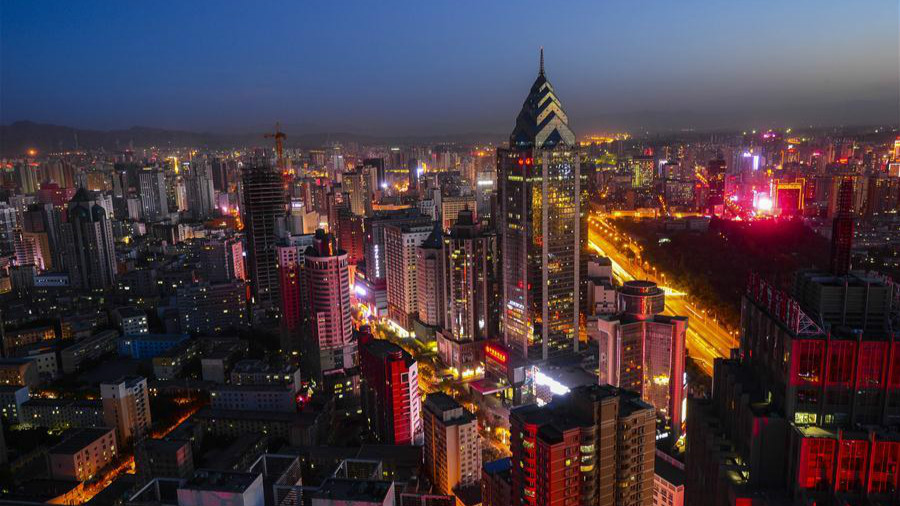
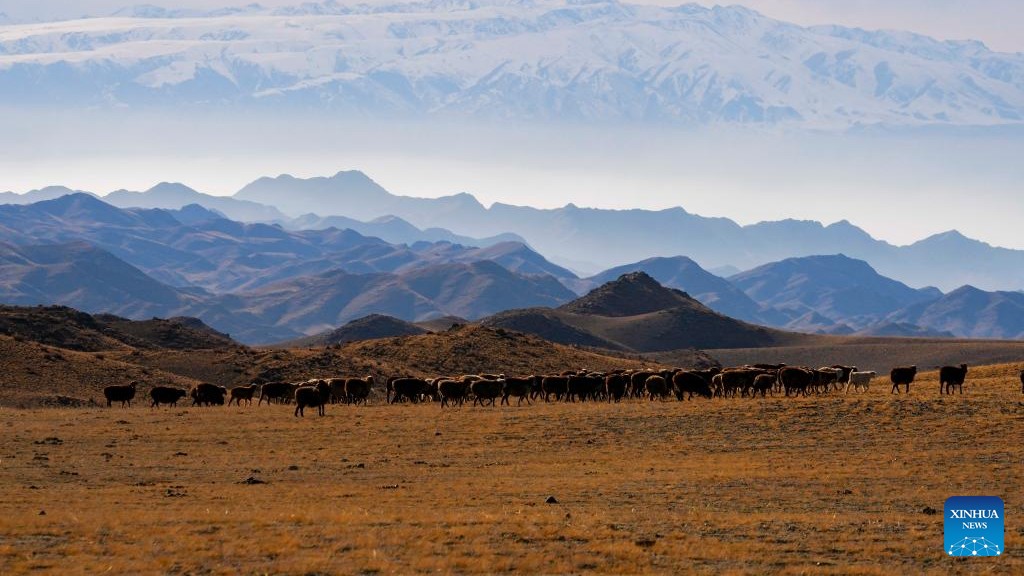

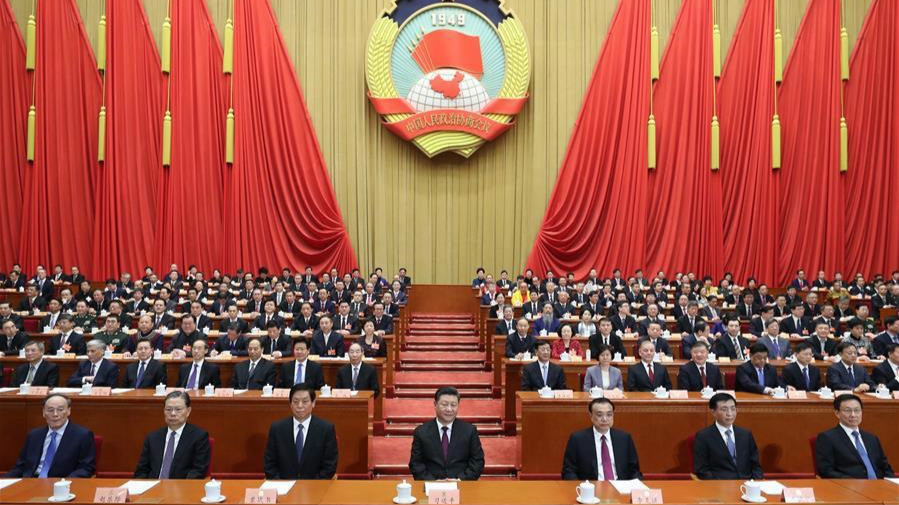
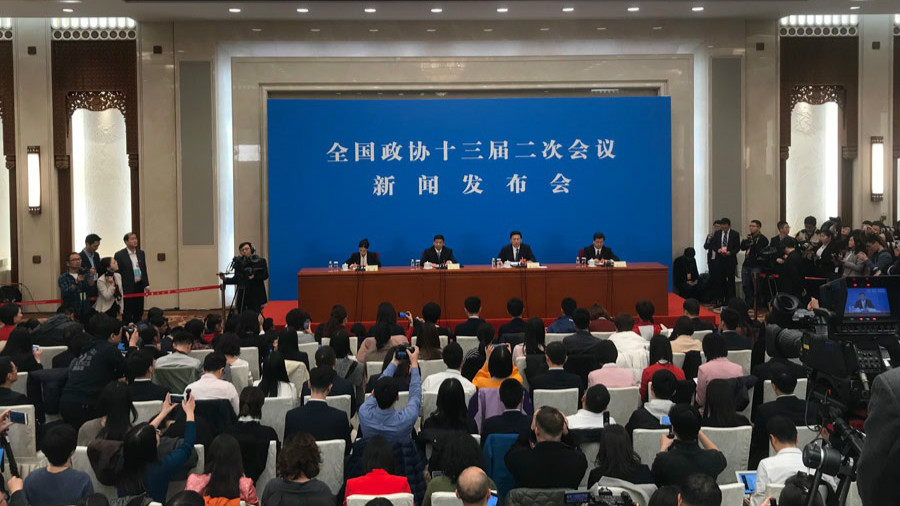
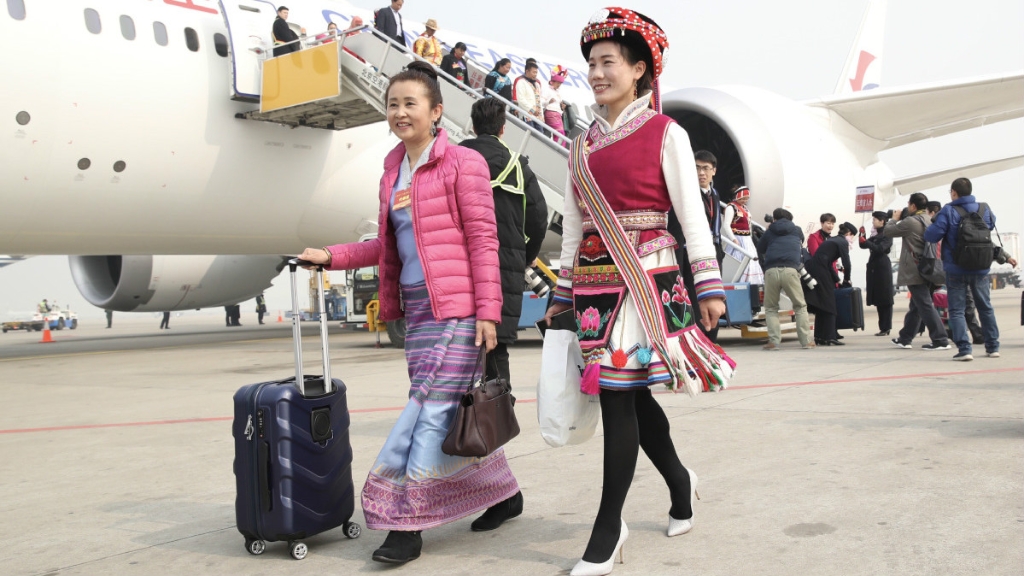
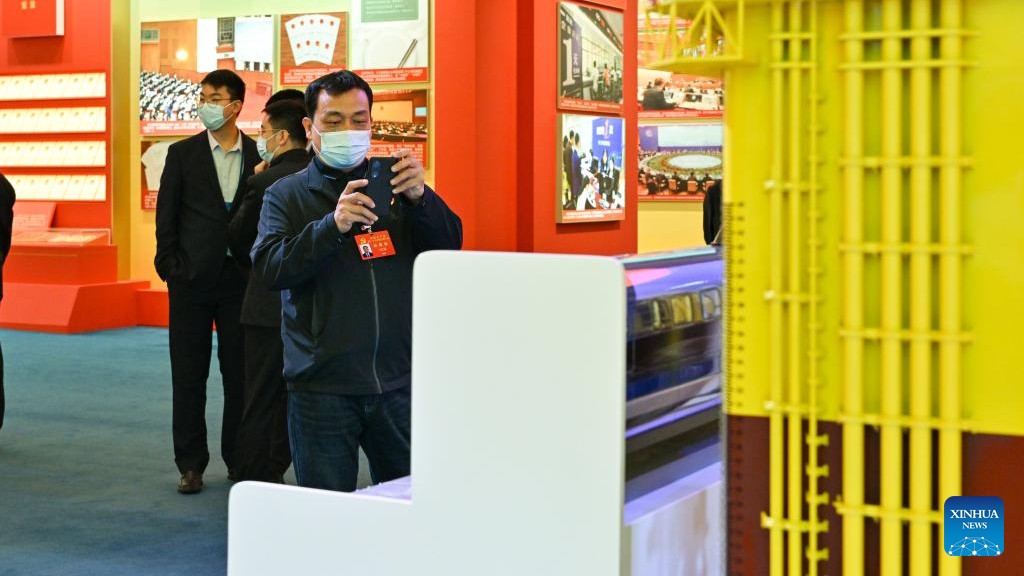
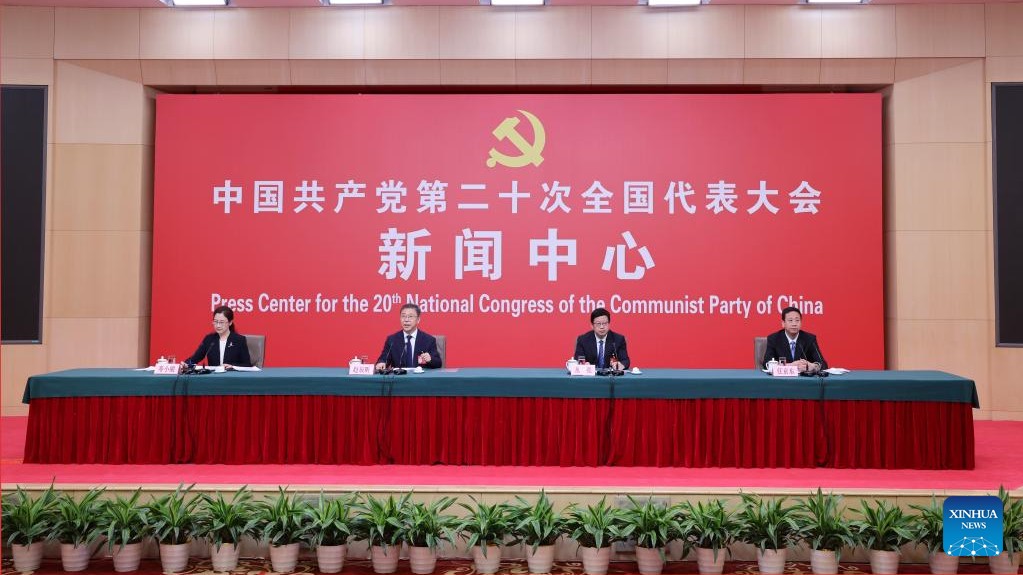
.jpg)
